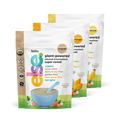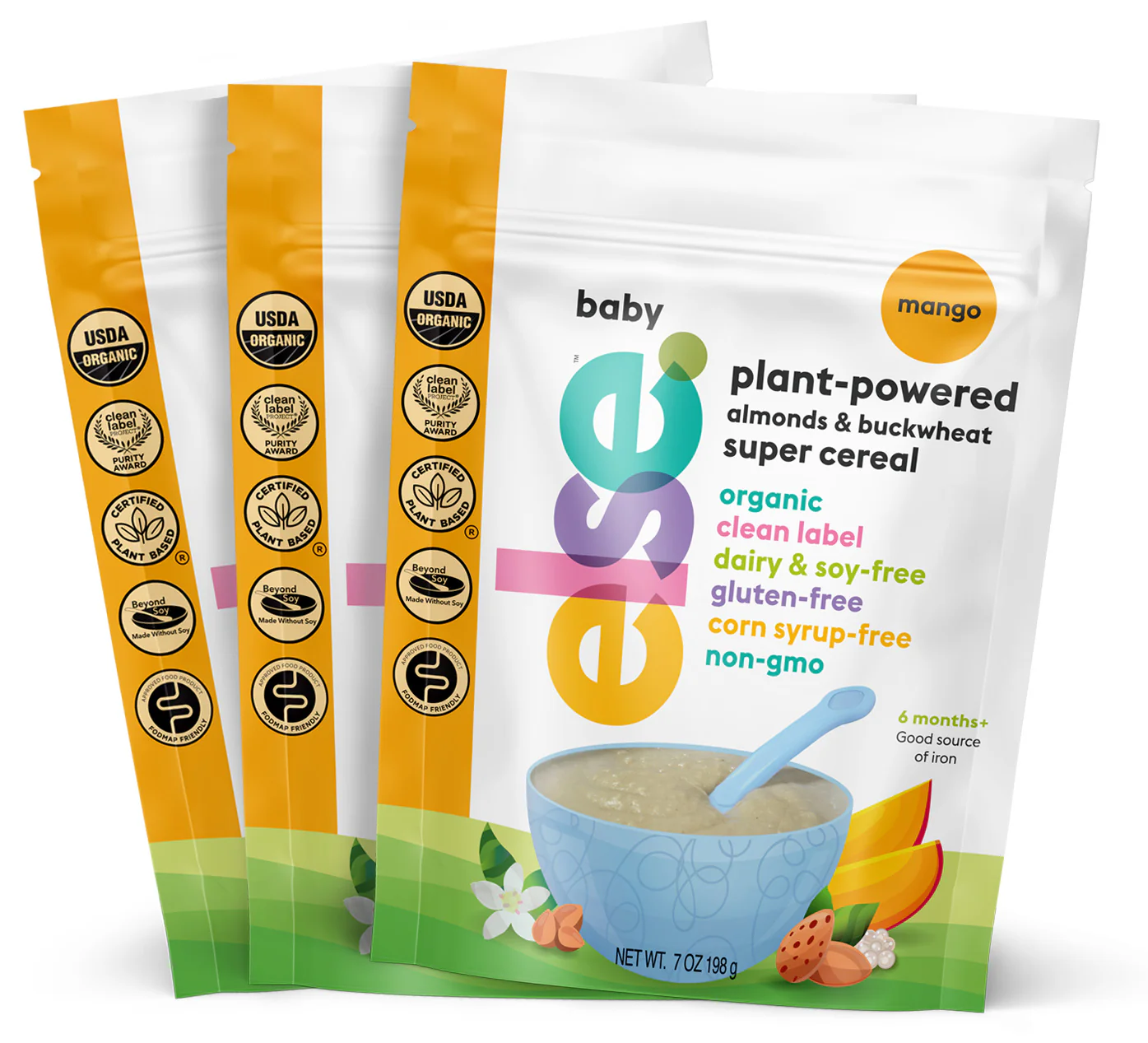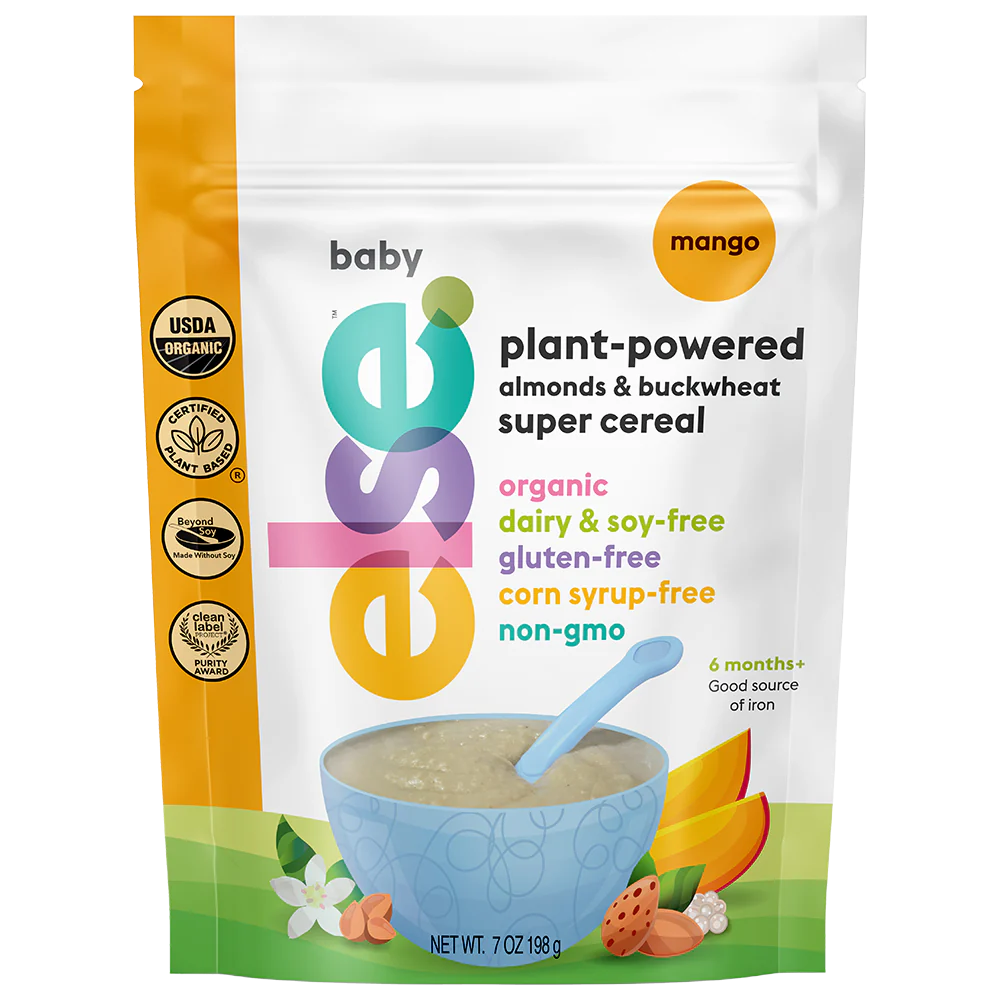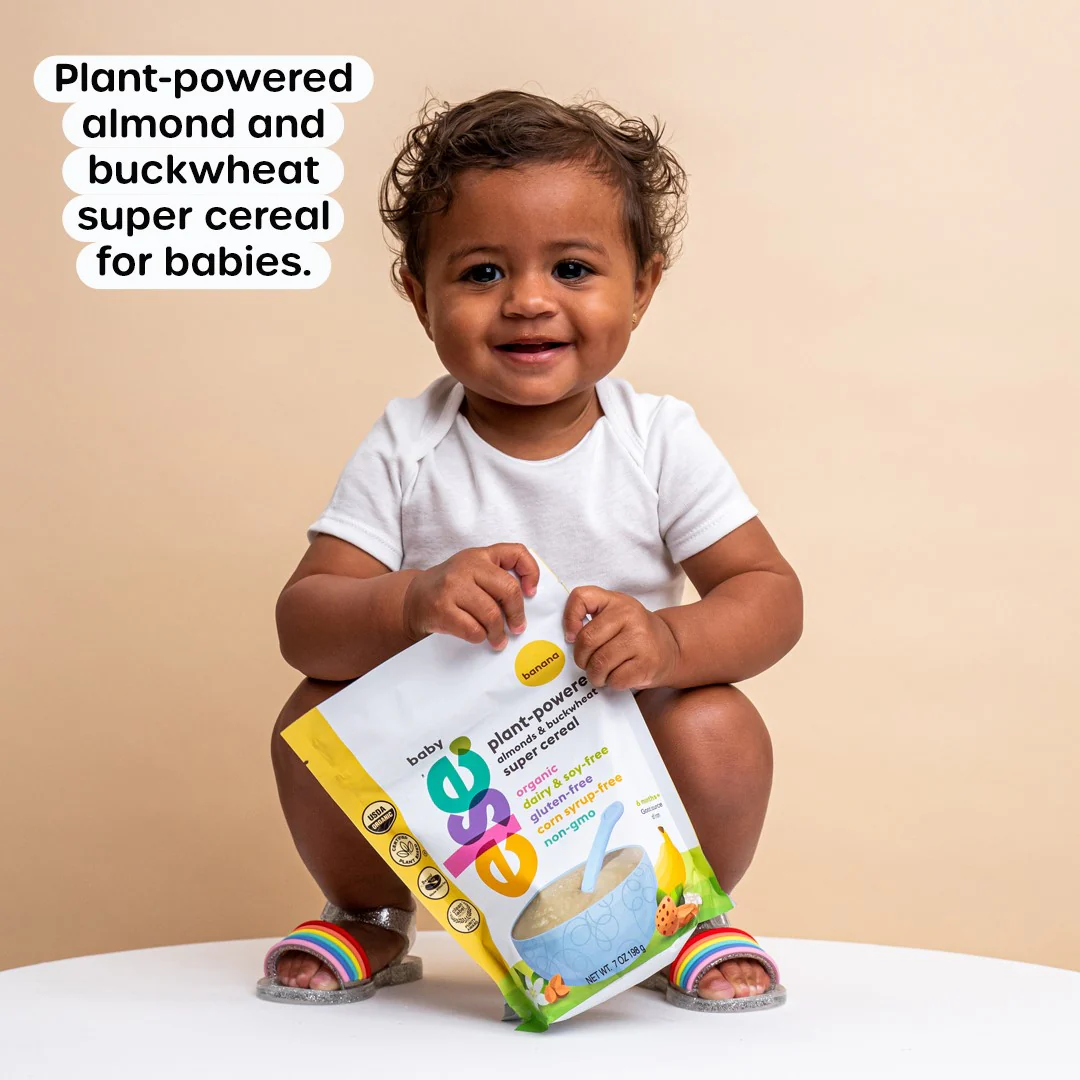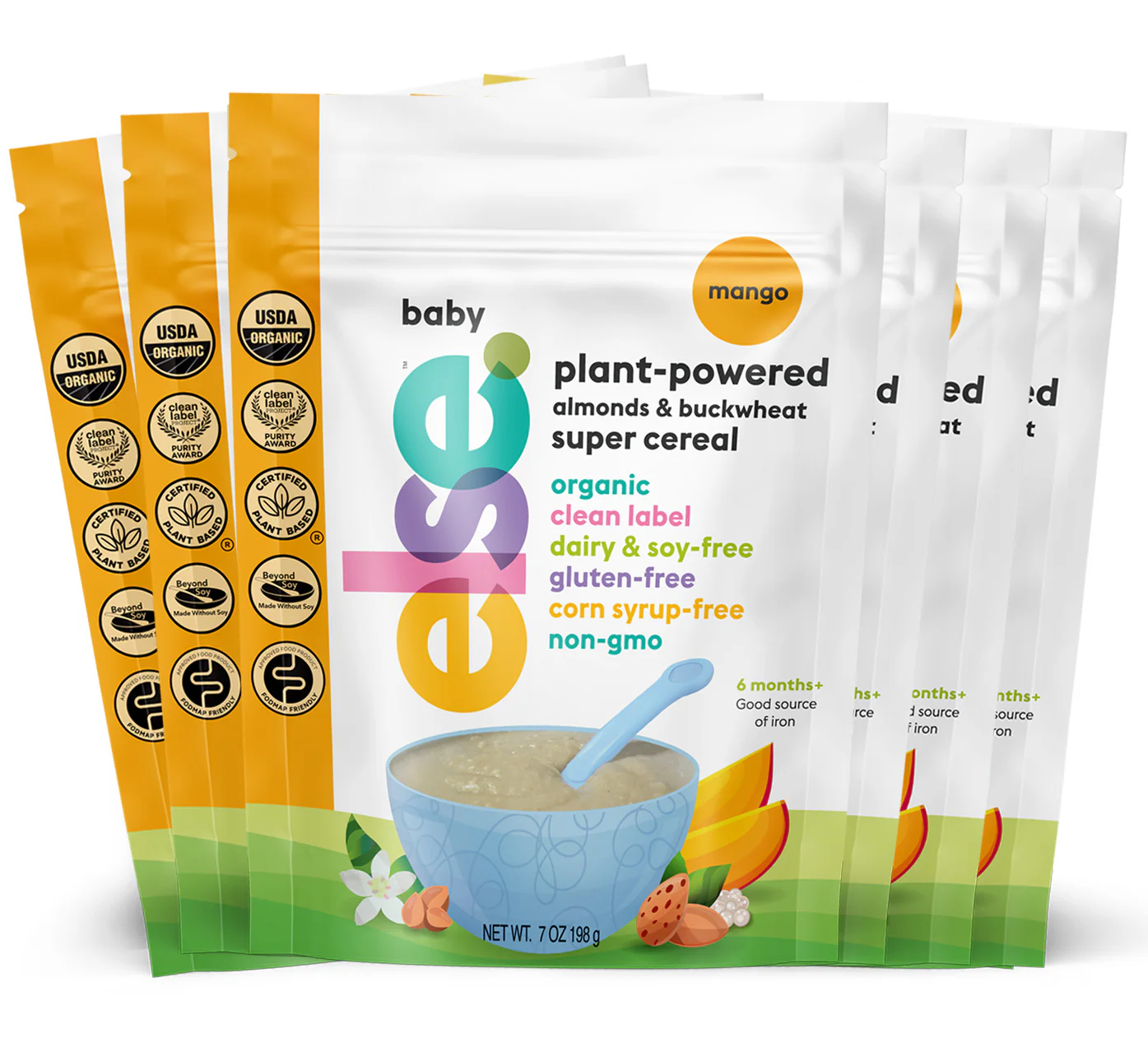Choosing Dairy and Soy-Free Formula for Your Baby
Looking for dairy and soy-free formula options? This blog offers valuable insights and guidance to help you make an informed decision when choosing dairy and soy-free formula for your baby.
Updated May 17, 2024

Choosing a baby formula can be overwhelming. There are a lot of options to choose from when transitioning your baby off of human milk. While dairy and soy formulas have long been at the forefront of the baby formula industry, these forms of milk formula aren’t the right fit for every family. It’s common for many infants to require either a dairy free formula (due to a cow milk allergy), a soy free formula, or a formula option that’s free from both of these ingredients. Understanding some of the main reasons for choosing a soy free or dairy free formula can help your family make the right decision.
What is Soy-Based Formula?
Soy-based baby formula is made using soy protein and other ingredients. It was first developed in 1909 and has dominated the dairy-free baby formula marketplace since its introduction as an alternative to cow's milk formula. In the United States, there are currently no other plant-based baby formula ingredients available other than soy baby formula. However, there are a number of reasons why soy-based formulas may not end up being the ideal option for your baby.
Why is Soy Baby Formula Used?
Soy formula is primarily used as an alternative to dairy-based options for babies who have displayed a milk allergy or are part of a plant-based household. Although this is a primary alternative to milk based formula, soy milk may not truly be the best alternative for your baby.
Things to Consider when Choosing a Soy-Free formula
1. Your child has a soy intolerance or allergy.
One of the primary reasons many parents evaluate the protein source in their baby’s formula is because of intolerance or allergy concerns. If your child is suspected to have a soy intolerance, or has been diagnosed with a soy allergy, choosing a soy-free formula is certainly appropriate. Symptoms of a potential intolerance to soy formula can include diarrhea, fussiness, bloating, vomiting, and rash.
It’s important to note that some babies who have an allergy or intolerance to cow’s milk proteins are also unable to tolerate soy protein. As such, the American Academy of Pediatrics suggests that if your baby has cow's milk or lactose intolerance, choosing a soy-based formula may also not be the answer. The best option for your baby should be discussed with your child’s pediatrician and potentially a pediatric allergen specialist to determine the best approach to finding the right formula.
2. You may be concerned about your child’s exposure to GMOs or aluminum.
The majority of soy crops grown around the world are genetically modified. Many parents prefer to avoid GMOs in their baby’s diet. One way to minimize or avoid exposure to these is to buy certified organic soy formula that's non-GMO verified, as identified by an official seal on the product packaging. Alternatively, choosing a soy-free baby formula is another way to avoid GMOs.
Aluminum is a naturally occurring heavy metal that can accumulate in the body and have neurotoxic effects. Concern around the aluminum content of soy formulas was first circulated in the nineties, with studies finding that while breast milk contains 4-65 ng/ml of aluminum, soy formulas can contain anywhere from 600-1300 ng/ml. This is primarily a result of the mineral salts used in formula production.
However, while aluminum content continues to be a concern in soy products, research indicates that babies with healthy functioning kidneys are at low risk for aluminum toxicity from soy-based formulas. Still, if your infant has impaired kidneys, choosing a soy-free formula may offer peace of mind.
3. Soy-based formula may contain more added sugar than you prefer.
Added sugar, meaning sugar that is not naturally-occurring in foods and ingredients, is not an essential nutrient. The American Academy of Pediatrics recommends no more than 25 grams (6 teaspoons) of added sugar per day for children over the age of two years, stating that, “Eating and drinking too much added sugar puts kids at risk for obesity, tooth decay, heart disease, high cholesterol, high blood pressure, type 2 diabetes and fatty liver disease…”
Before two years, infants should be avoiding as much added sugar (and other artificial sugar alternatives like high fructose corn syrup) as possible, which can be hidden in many things, including baby formula. Research suggests that introducing added sugar to infants early on can have adverse effects when it comes to chronic disease and eating habits later in life.
Interestingly, a 2002 study found that flavor preferences later in life were associated with the types of formula used in infancy. While the study didn’t examine added sugar specifically, it did find that children who used soy formula were more likely to prefer bitter apple juice over sour flavors or broccoli, compared to infants fed milk-based or protein hydrolysate formulas.
4. Many soy-based formulas contain corn, which is not appropriate for babies with corn allergy or intolerance.
Looking at the ingredient label is an important first step when evaluating any baby formula option. Per product labeling guidelines, ingredients must be listed in descending order of weight. This means that the first ingredient listed is present in the largest amount, and the last ingredient is present in the smallest.
You may find corn listed as the first ingredient in many soy-based baby formulas, as it’s often the primary carbohydrate (energy) source. This may be listed as corn solids, corn maltodextrin, corn syrup, or corn syrup solids.
If your baby has a sensitivity to corn, you might consider looking for a corn-free soy-based formula, or choosing a soy-free formula instead.
5. Your baby has congenital hypothyroidism.
When a child is born with this condition, he or she lacks thyroid hormone at birth. Symptoms may not be apparent right away, but often appear in infants as prolonged jaundice, sleeping more than usual, and difficulty eating. How does this relate to soy-based infant formula? If your baby is diagnosed with congenital hypothyroidism, research suggests that choosing a soy-free formula may be beneficial.
In two studies, the authors found that infants with congenital hypothyroidism who were fed soy formula experienced a prolonged increase in thyroid-stimulating hormone compared to babies fed soy-free formula, which complicated management of the condition. They concluded that these infants may benefit from a soy-free formula, closer monitoring, and a potential need for medication dosing adjustments to manage symptoms.
What About Soy and Estrogen?
It’s worth noting that some parents may be wondering whether to avoid soy formula due to concerns around isoflavones in soy, plant compounds that have long been accused of promoting cancer and reproductive issues due to similar structure to estrogen.
On the contrary, soy isoflavones act and bind differently than the hormone estrogen in the body. Research has found that moderate consumption of soy foods is more likely to have a protective effect against cancers later, especially when eaten earlier in life, and can even support healthy fertility. Furthermore, babies who consume soy formula are no more likely to experience reproductive issues.
Choosing a soy-free formula may mean that a cow’s milk-based formula or a protein hydrolysate specialized formula are the best choice for some families. However, Else Nutrition is excited to be bringing another soy-free option for babies to the market that is clean label, organic, non-GMO and made with minimally-processed, highly nutritious, whole plant ingredients.
Things to Consider when Choosing a Dairy-Free formula
Dairy formula was created as an early attempt to mimic the chemical components and nutrients found in human breast milk. They are generally the go-to for many families, unless there’s an obvious need to choose a non dairy formula, like soy. Still, dairy formulas may not ultimately be ideal for your baby. Here’s why.
1. Your child has lactose intolerance.
One of the most common reasons many parents and caregivers choose a dairy free baby formula is due to lactose intolerance concerns. If your family has a history of lactose intolerance, it’s possible that your baby may be at higher risk as well, but this isn’t always easy to identify. There can be many root causes. In very rare cases, congenital lactase deficiency is inherited through an autosomal recessive pattern, which means both parents may have the gene but don’t express symptoms. Lactose intolerance can vary in severity. It happens when the enzyme lactase, which is needed to break down the milk sugar lactose, is deficient or inefficient. Some signs formula doesn't agree with the baby due to its lactose content include fussiness around eating, restlessness, bloating, increased gassiness, or signs of stomach pain like clenching fists or arching backs. It’s best to speak to your child’s pediatrician if lactose intolerance is suspected.
2. Your child has a milk protein allergy.
Choosing a dairy and soy free formula can mean looking into hypoallergenic or amino acid based options for babies instead. This can be a priority if your child has a known allergy to the milk proteins casein or whey, or both. While lactose intolerance is due to a missing digestive enzyme, having a milk protein allergy is an autoimmune response. The latter can result in an allergic reaction, like hives, swelling, and itchiness. In the most serious cases, it can lead to anaphylaxis that requires emergency medical attention. A milk protein allergy can be diagnosed with the help of your child’s pediatrician and likely involves a non dairy formula.
3. Your baby is at higher risk for reflux.
Acid reflux is a condition in which stomach acid flows back into the esophagus and causes discomfort. There may be a correlation between reflux and milk protein in babies, though some babies without an allergy may simply be more sensitive to dairy. Changing formulas to eliminate dairy from their diet may alleviate some of the discomfort.
Having mild or occasional reflux, typically observed as spitting up after feeding, is very common for healthy babies with developing digestive systems. In this case, babies typically aren’t irritable. However, if you suspect that your baby is experiencing more severe reflux with eating, and is noticeably more irritable, considering a non dairy formula can be a good place to start. Some signs of acid reflux in babies can include crying more around mealtime, slowed or halted weight gain, not wanting to eat or take formula, frequent or forceful vomiting, coughing and wheezing, stool changes that look like coffee grounds or have blood in them, slowed heartbeat, or difficulty breathing. In addition to considering a dairy free formula, it’s always best to speak to your child’s pediatrician if you suspect acid reflux.
» Discover the key signs that formula isn't suitable for your baby
4. You’re interested in feeding your child a plant-based diet from the beginning.
Many families are switching to predominantly plant-based diets. For some households, this means minimizing animal-derived products like dairy formula. Lot of plant-based diets can be incredibly healthy and have been done properly even in infancy.
Choosing a dairy free baby and toddler formula is one way to introduce your child to a plant-based diet from the very beginning. For families following a plant-based lifestyle, a dairy free formula can provide peace of mind that their baby is following the same diet pattern.
5. You have ethical concerns with dairy formula.
While dairy formula has been one of the standard choices for a long time, that doesn’t mean it’s the only one. Many parents choose to provide their baby a dairy free formula due to ethical concerns with the dairy industry. Many parents appreciate that a non dairy formula is more sustainable for the environment and doesn’t require animals for its production. If you choose to provide your child a dairy and soy free formula, Else Nutrition aims to offer a perfect alternative. Rest assured that Else formulas provide all of the essential nutrients for your baby regardless of what diet your family follows.
The content and advice provided in this article is for informational purposes only and is not a substitute for medical diagnosis, treatment, advice for specific medical conditions. Always consult a pediatrician to understand the individual needs of your child.




